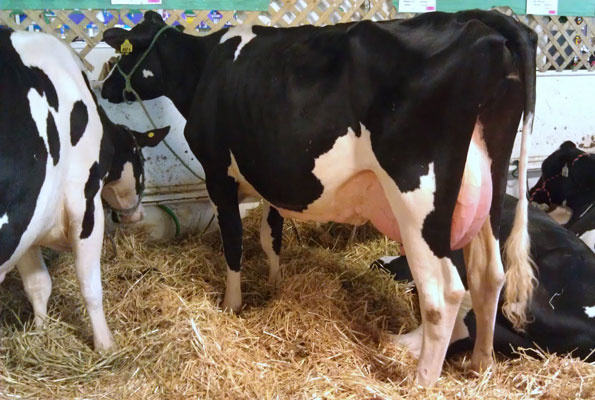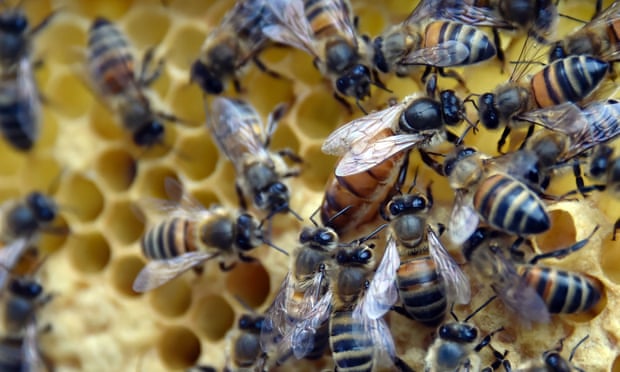
When Retired lieutenant colonel Cheptoo Kimosop decided to retire from his job as pilot, he had one thing on his mind that he wanted to pursue: dairy farming.

When Retired lieutenant colonel Cheptoo Kimosop decided to retire from his job as pilot, he had one thing on his mind that he wanted to pursue: dairy farming.
Organic farming is a way of producing food that respects natural life cycles. It minimises the human impact on the environment and operates as naturally as possible.
Organic farming is part of an extensive supply chain, which also includes food processing, distribution and retailing.
 Agriculture professionals are working smarter, not harder, than ever before. Smart farming technologies have enabled them to reduce costs, maximize yields and profits, and still be incredibly efficient in the process.
Agriculture professionals are working smarter, not harder, than ever before. Smart farming technologies have enabled them to reduce costs, maximize yields and profits, and still be incredibly efficient in the process.
And there is perhaps no better example of smart farming than with the mobile app. It has become a game changer for on-the-go growers and ag retailers, enabling them to perform critical tasks wherever and whenever they need it. From scouting fields and managing agronomic data, to flying drones and creating farm maps, there is virtually no job that a farming app can’t do.
 The Paris Climate Agreement entered into force last year, heralding a major milestone in international action on climate change, and an ambitious target to contain global temperature rise to well below 2°C above pre-industrial levels, in this century. Over 100 countries, which account for nearly 70% of global emissions, have ratified the Agreement, and are now obliged to deliver on their commitments and convert their plans into action. But unless countries act decisively and meaningfully, and increase their ambitions over time, this will not be enough to safeguard food and farming.
The Paris Climate Agreement entered into force last year, heralding a major milestone in international action on climate change, and an ambitious target to contain global temperature rise to well below 2°C above pre-industrial levels, in this century. Over 100 countries, which account for nearly 70% of global emissions, have ratified the Agreement, and are now obliged to deliver on their commitments and convert their plans into action. But unless countries act decisively and meaningfully, and increase their ambitions over time, this will not be enough to safeguard food and farming.
The Paris Agreement is made up of Intended Nationally Determined Contributions (INDCs), which are climate action plans developed by countries, outlining their priorities and measures. The INDCs of countries overwhelmingly put agriculture the top of the list for climate action; over 60% of submitted INDCs included mitigation in agriculture. And of the countries which included adaptation, over 90% included adaptation in agriculture. African countries in particular have expressed a clear desire to tackle these issues: 98% of African countries included adaptation actions in agriculture and 68% included mitigation actions in agriculture.
 Recent events around agricultural research and innovation, such as the Global Conference on Agricultural Research for Development (GCARD3) held in April 2016 at Johannesburg, South Africa and the 5th Global Forum of Leaders in Agricultural Science and Technology (GLAST-2016) held at Lingshui, Hainan, China in December 2016, have focused on re-aligning research needs and priorities with countries’ own development needs and national processes as well as with the Sustainable Development Goals (SDGs).
Recent events around agricultural research and innovation, such as the Global Conference on Agricultural Research for Development (GCARD3) held in April 2016 at Johannesburg, South Africa and the 5th Global Forum of Leaders in Agricultural Science and Technology (GLAST-2016) held at Lingshui, Hainan, China in December 2016, have focused on re-aligning research needs and priorities with countries’ own development needs and national processes as well as with the Sustainable Development Goals (SDGs).
Presentations and discussions at both these events have indicated that the key challenges to agricultural research, innovation and development systems globally are increasingly recognized as:
Every good thing must come to an end and YPARD 10 Years celebrations is no exception. After a year long of celebrations to mark our
 The threat posed to bees by neonicotinoid pesticides is greater than perceived in 2013 when the EU adopted a partial ban, new report concludes.
The threat posed to bees by neonicotinoid pesticides is greater than perceived in 2013 when the EU adopted a partial ban, new report concludes.
Europe should expand a ban on bee-harming pesticides in light of a new report warning of widespread risks to agriculture and the environment, Greenpeace has said. The report by biologists at the University of Sussex and commissioned by Greenpeace, concluded that the threat posed to bees by neonicotinoid pesticideswas greater than perceived in 2013 when the European Union adopted a partial ban. “New research strengthens arguments for the imposition of a moratorium” on the use of three neonicotinoids – clothianidin, imidacloprid and thiamethoxam, the analysis concluded. “It has become evident that they pose significant risks to many ... organisms, not just bees.”
The SmartSOIL (Sustainable farm management aimed at reducing threats to SOILs under climate change) project developed options to increase soil organic carbon (SOC) in Europe. It used meta-analyses of data from long-term experiments to model the impact of different farming practices on SOC. Unfortunately, studies have shown that individual farmers are often interested in short-term financial gains from increasing productivity and less concerned about the long-term sustainability of agricultural practices. Efforts to increase SOC is known as soil carbon sequestration. The SmartSOIL initiative received funding from the European Union’s Seventh Framework Programme for research and the Dutch Ministry of Economics Affairs.
A Sustainability article published in 2015 made the issue clear, “Soil degradation is not a theoretical problem; it is actively diminishing production capacity and compromising livelihoods at this very moment.” According to the International Fund for Agricultural Development (IFAD), one-third of the world’s 1.5 billion hectares of arable land is moderately or severely degraded, having lost either part of its structure or fertility. Soil resources are being over-exploited, degraded and irreversibly lost. Poor management practices, urbanization, industrial and mining activities, and land-use changes are causing this degradation. Further, the U.N. Food and Agriculture Organization (FAO) states that converting natural ecosystems to agricultural plots has released roughly 66 billion tons of SOC from the ground since 1850.

The organic dairy sector in France has significant differences – but also some commonalities – with the conventional dairy sector. Rising consumer demand, producer organisations, and regional feed crop supply are among the differences – as is the decoupling of organic and conventional prices.
Page 23 of 116
Email: [email protected]
YPARD Global Coordination Unit
Hosted by AGRIDEA and the Czech University of Life Sciences Prague
Lausanne, Switzerland and Prague, Czech Republic
